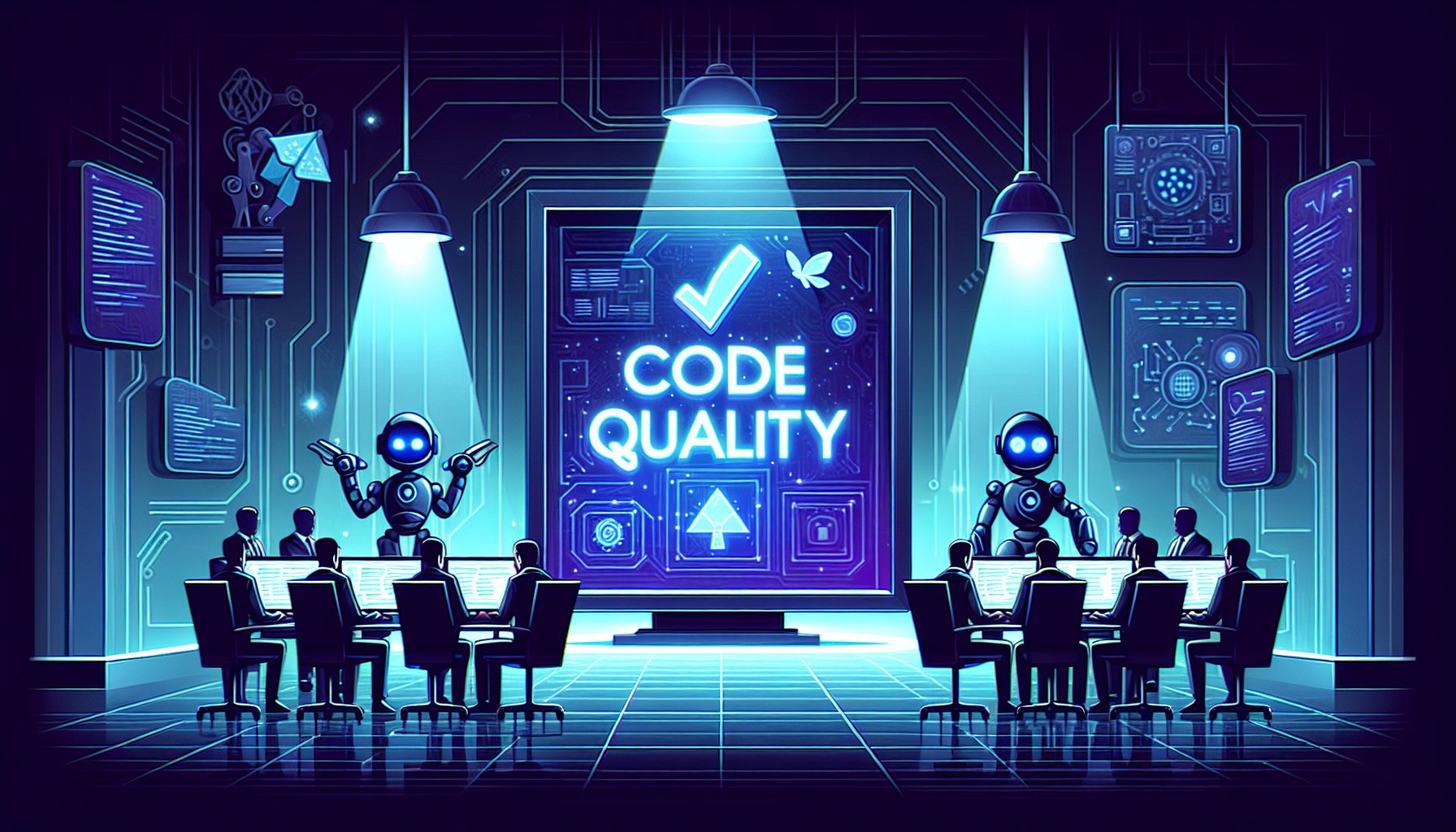Introduction
With the rapid progression of technology, maintaining code quality is more critical than ever. It is the backbone of efficient software development and deployment, ensuring longevity, scalability, and optimal performances. In this post, we will explore the latest approaches, methodologies, and tools that define the future of Code Quality.
DevSecOps: Bringing Security to the Forefront
DevSecOps, the principle of integrating security practices within the DevOps process, is becoming the new norm. This approach emphasizes the "Shift Left" principle, bringing security checks earlier in the software development cycle, thus reducing vulnerabilities and enhancing code quality.
# Sample DevSecOps pipeline
pipeline {
agent any
stages {
stage('Build') { /*...*/}
stage('Security') { /*...*/}
stage('Test') { /*...*/}
stage('Deploy') { /*...*/}
}
}
Automated Testing: Ensuring Code Consistency
Automated testing is a key player in maintaining code quality. By automating repetitive tests, developers can focus on complex tasks, while also ensuring that existing features remain intact after changes in the codebase. Test-Driven Development (TDD) and Behavior-Driven Development (BDD) are modern methodologies driving the future of testing.
Machine Learning: Predicting Code Quality
Machine Learning (ML) is revolutionizing the way we approach code quality. ML algorithms can be trained to predict potential bugs, vulnerabilities, and code smells by learning from past data. This proactive approach can drastically improve code quality while saving countless hours of debugging and maintenance.
Code Review: A Collaborative Approach
Code reviews are a tried-and-true practice for maintaining code quality. They encourage knowledge sharing and collaboration, leading to cleaner, more efficient code. Modern tools such as GitHub and GitLab provide seamless solutions for code reviews, facilitating feedback and discussions within the development team.
Staying on Top of Code Quality
Code quality is not a one-time effort but a continuous process. It requires a combination of the right practices, tools, and a quality-first mindset. As technology evolves, so do the approaches to ensuring code quality. Staying up-to-date with the latest advancements and integrating them into your development process is key to maintaining high code quality.
Conclusion
Embracing the future of code quality requires a forward-thinking approach, leveraging the latest technologies and methodologies. By integrating DevSecOps principles, harnessing the power of automated testing, utilizing Machine Learning for proactive bug detection, and encouraging collaborative code reviews, developers can ensure robust, efficient, and maintainable code. The future of code quality is here, and it is transforming the way we develop and deploy software.
